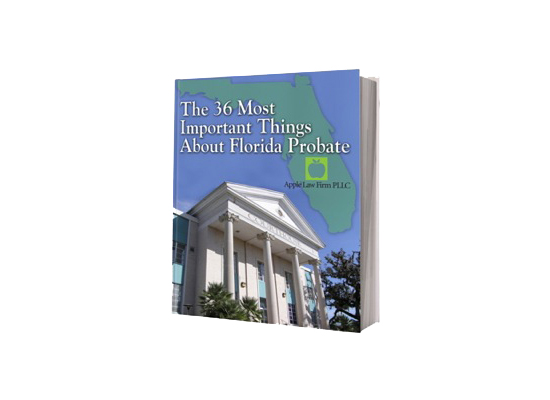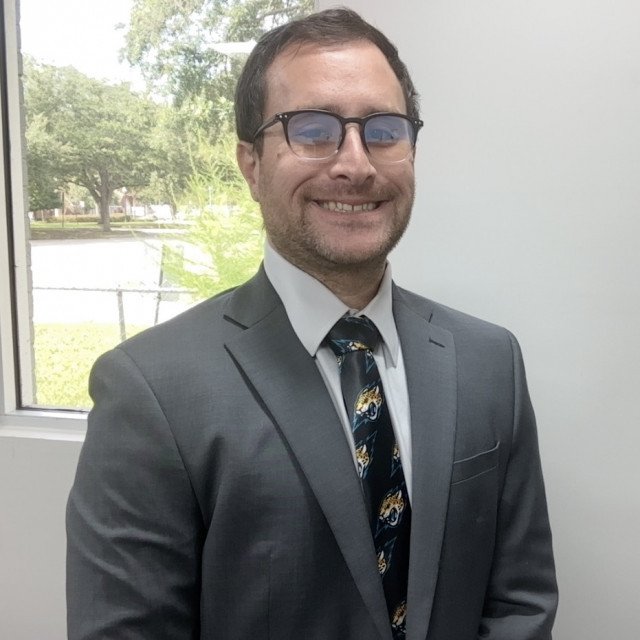LANDING SAFER
Wills
Jacksonville Will Attorney
Most of the top estate planning attorneys in Jacksonville and Ponte Vedra who draft Florida Wills will tell you, a Will is a solid foundation to any estate plan. Even the most complex plans, do not skip the Florida Will. For clients will children, one of the best reasons to have a Will is to name guardians for your minor children.
Florida gives its residents freedom to dispose of their property as they see fit at death, but a person can only gain this freedom by executing a valid Will. A Florida Will must meet certain formalities to be effective, and every state has their unique rules for wills. A person that does not properly execute a Will can leave a disastrous result behind for family and loves ones.
When thinking about the importance of a properly executed Will, one quote often comes to mind from law school that we continue to see effect individuals on a regular basis:
“There is nothing like the death of a moneyed member of the family to show persons as they really are, virtuous or conniving, generous or grasping. Many a family has been torn apart by a botched-up will. Each case is a drama in human relationships — and the lawyer, as counselor, draftsman, or advocate, is an important figure in the dramatis personae. This is one reason the estates practitioner enjoys his work, and why we enjoy ours.”
– Jesse Dukeminier and Stanley M. Johanson, introduction to 1972 edition of Family Wealth Transactions: Wills, Trusts, Future Interests, and Estate Planning.
What Happens When a Florida Resident Dies Without a Will?
A Florida resident that dies without a valid Will is said to die intestate, which means this person’s assets will pass according to Florida Statutes. Without a Will, the decedent has zero say over how the government distributes his or her property, and it can mean that some loved ones, like step children, will not receive anything at all.
Intestate Succession can be a complicated process to understand, as it is often the bane of many law students’ existence. The process is relatively simple if a person dies with a spouse and no descendants, then the spouse inherits everything. If the decedent dies with no spouse but has children, the children inherit everything. Further, if the spouse and children are both alive, and the spouse has no children outside of the marriage, then the spouse inherits everything.
Intestate succession is more complicated if there are children outside of the marriage. If the spouse survives the decedent and children from the marriage survive, and there are also children from one spouse outside of the marriage, then the spouse inherits 1/2 of the estate, and the children split the other half of the estate.
Florida uses a system of property division called Per Stirpes. Per Stirpes means each person in a category gets the same share as the others. For example, if a person dies intestate with no spouse and two children then each child will receive a 1/2 share. In Florida, half-blood children receive half the share that a child would normally receive intestate. So if there are 3 children and one child is half-blooded, then one child would receive 1/6 of the estate and the other children would each receive 5/12 of the estate.
How a Will is Made
Any person who is of sound mind can make a Will. This person should also be at least 18 years old or an emancipated minor. Florida also requires the Will to be in writing. The testator, or the person that creates the Will, may handwrite a Will as long as it meets all the stringent formal requirements the state requires. The testator must sign the Will for it to be valid, and the testator must place his or her signature at the end of the document. If a person is incapacitated, then someone on behalf of the testator that is not serving as a witness may sign the Will.
One of the most important requirements for a Will to be valid is there must be witnesses to the Will. Florida law requires there to be two witnesses. These witnesses must sign in the presence of the testator as well as in the presence of each other. A court will hold a Will to be invalid if these requirements are not met.
Invalid Wills in Florida
There are two types of Wills that Florida will not recognize, even if they are valid in another state. One invalid Will is the Holographic Will. A Holographic Will is one that is handwritten by the testator but is not signed by any witnesses. A Holographic Will is not valid even if the testator creates the will in a state that allows Holographic Wills.
Florida also does not recognize Nuncupative Wills, which is where the testator makes a Will verbally in the presence of witnesses. Some jurisdictions allow terminally ill residents to make these Wills when there is not enough time to make a written Will. As one might imagine, these Wills could cause a lot of headache for courts trying to figure out a testator’s intent from eyewitnesses, which is most likely why Florida does not allow them.
Other than these two types of Wills, any Will that is valid in another state will be recognized by Florida.
Codicils
Florida allows a person to make minor changes to his or her Will through a will codicil. A codicil is an excellent way to make small changes, clarifications, or other amendments to the Will without having to rewrite the whole document. The codicil must meet the same formal requirements of a Will to be valid. We often see a Will created in one state that does not require witnesses and a codicil created after moving to Florida, that is later determined to be invalid because of the lack of witnesses.
Is a Will the Best Estate Planning Tool?
While the Florida trust is a great tool that enables a person to choose how to leave property to their loved ones, the Will is also extremely limited in what it can do. A Will cannot avoid the probate, which is typically a three to twelve-month long formal process with court supervision to administer the Will. A Will does not offer any asset protection to the person who creates the Florida Will, which means anything given to a loved one is at risk to creditors. A Will can help to reduce or eliminate probate costs and fees and is open to publicity.
A Florida Revocable Trust or Florida Living Trust, if used properly, permits clients to avoid probate. If you have a trust, you should have a unique type of will called a Pour-Over Will that will distribute property to your trust. This document is similar to a Florida Will in that it describes what happens to your property in the event of your death. A Trust is not necessary for everyone and only after an analysis of your goals and assets can the proper decision be made. We would be happy to do a free evaluation of your current situation to see what is the appropriate set of documents for your Florida Estate Planning needs.
If you own property, have children, have recently been married or divorced, or want to make a gift or a bequest to someone it is important to create or update your Florida Will. Our estate planning attorneys will ensure that your property is distributed according to your wishes.
TO SET UP A Free Consultation*, CONTACT A FLORIDA WILL LAWYER ONLINE OR CALL US AT(904) 685-1200.












